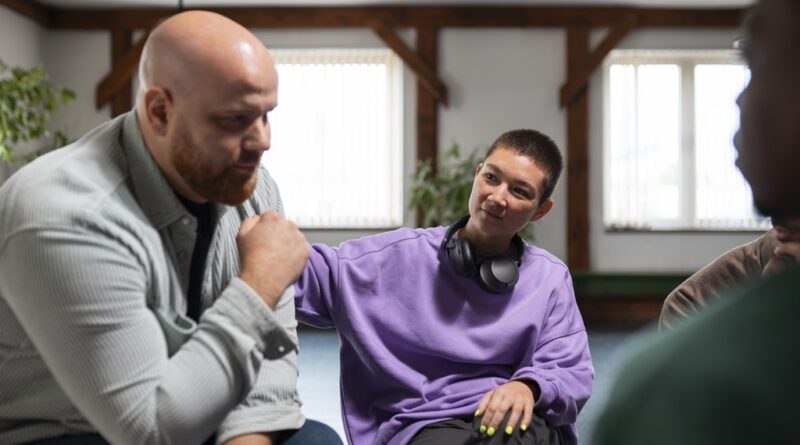How De-addiction Centers Offer Holistic Recovery?
De-addiction centers play a pivotal role in providing individuals with the necessary tools and support to overcome their addictions. Yet, they are viewed with stigma and resistance, which is aligned to addiction and its consequences. With millions of people from across the world battling addiction with varying degrees impact, it is crucial to comprehensively understand the role of rehabilitation centers in facilitating holistic recovery.
While traditional perception indicates that these centers often focus solely on the physical symptoms of addiction, de-addictions centers usually adopt a more comprehensive approach that addresses the individual’s mind, body and spirit. In this blog, we will delve into how de-addiction centers offer holistic recovery, providing a nurturing environment for individuals to heal and thrive.
What does it mean to be holistic?
Holistic recovery emphasizes that addiction is a multifaceted issue that affects every aspect of a person’s being. Rather than treating addiction as merely a physical ailment, these centers acknowledge the interconnectedness of the mind, body and spirit in the recovery process. This means that the de-addiction process will involve medical sessions, personal therapy sessions from mental health experts, lifestyle modifications, family therapy and various other interconnected modalities. By addressing the root causes of addiction and promoting overall well-being, de-addiction centers aim to empower individuals to lead fulfilling and substance-free lives in the long-run.
Personalized Treatment Plans
A person’s journey with addiction is unique and the way substance dependency affects a person’s personal, emotional and social life can differ vastly based on their specific circumstances. At a de-addiction centre, right upon admission, individuals undergo a thorough assessment to identify their unique needs, challenges and goals. This comprehensive evaluation considers not only the individual’s substance abuse history but also their mental, physical, and social circumstances. Based on this assessment, a customized treatment plan is developed tailored to address the specific needs of everyone. A personalized, flexible treatment plan thus becomes central to one’s recovery.
Integrated Therapeutic Approaches
Holistic recovery means integrating diverse therapeutic modalities to support individuals on their journey to sobriety. While traditional therapies such as cognitive-behavioral therapy (CBT) and motivational interviewing will be crucial parts of rehabilitation, other alternative approaches like mindfulness meditation, yoga, art therapy, music therapy or drama therapy have also proven to be effective. By offering a diverse range of therapeutic options, de-addiction centers cater to the diverse needs, capabilities and preferences of their clients, ensuring that each individual finds the modalities that resonate most deeply with them.
Physical Wellness is Part of the Process
With most addictions, it is natural to have clear physical symptoms that affect a person’s daily function. With the right tools to support physical wellness and nutritional, de-addiction centers provide the means to manage the immediate physical needs of an individual with addiction. Substance abuse often depletes the body of essential nutrients and compromises overall health.
Holistic recovery programs prioritize nutrition education, offering guidance on healthy eating habits and providing nourishing meals that support recovery and promote overall well-being. Additionally, established de-addiction centers offer fitness programs, recreational activities and holistic healing practices such as acupuncture and massage therapy to promote physical health and vitality.
Mindfulness and Stress Management
Stress and emotional distress are common triggers for substance abuse, making stress management an essential component of holistic recovery. Holistic recovery centers provide access to mindfulness techniques and stress reduction strategies to help them cultivate greater self-awareness, emotional resilience, and inner peace. Through practices such as mindfulness meditation, deep breathing exercises and guided imagery, individuals learn to manage cravings, cope with difficult emotions and cultivate a greater sense of balance in their lives.
Managing Co-occurring Mental Health Conditions
For many individuals, addiction co-occurs with one or many mental health conditions such as depression, anxiety disorder, bipolar disorder, post-traumatic stress disorder (PTSD), and schizophrenia. This complicates the recovery process as it requires careful evaluation and highly personalized mental health plans to support their struggles with addiction. Certified de-addiction centers employ licensed mental health experts that act as important companions that guide the person in navigating their mental health symptoms and make gradual progress. Rehabilitation centers recognize that without addressing some core mental health struggles, the person would not be able to make holistic recovery.
Community Support
De-addictions centers recognize the importance of community and peer support in the recovery process. Through group therapy sessions and support group programmes, individuals can connect with others on a similar path, share their experiences, and draw strength and inspiration from one another. Rehab centers aim to create a sense of belonging and camaraderie between individuals and build supportive communities where individuals feel understood, accepted and empowered to make positive changes in their lives.
No Recovery Without a Holistic Approach
Addiction is a complex and multifaceted issue that manifests differently in different people. With various emotional, social and familial factors in consideration, rehabilitation centers offer a comprehensive and integrated approach to addiction treatment that addresses the mind, body, and spirit. By integrating various therapeutic modalities, addressing mental health and physical concerns and involving the community, they help individuals heal and thrive in all aspects of life. Through holistic recovery, individuals not only overcome their addictions but also rediscover their true selves, reclaim their lives and embark on a journey of lasting transformation and growth.
